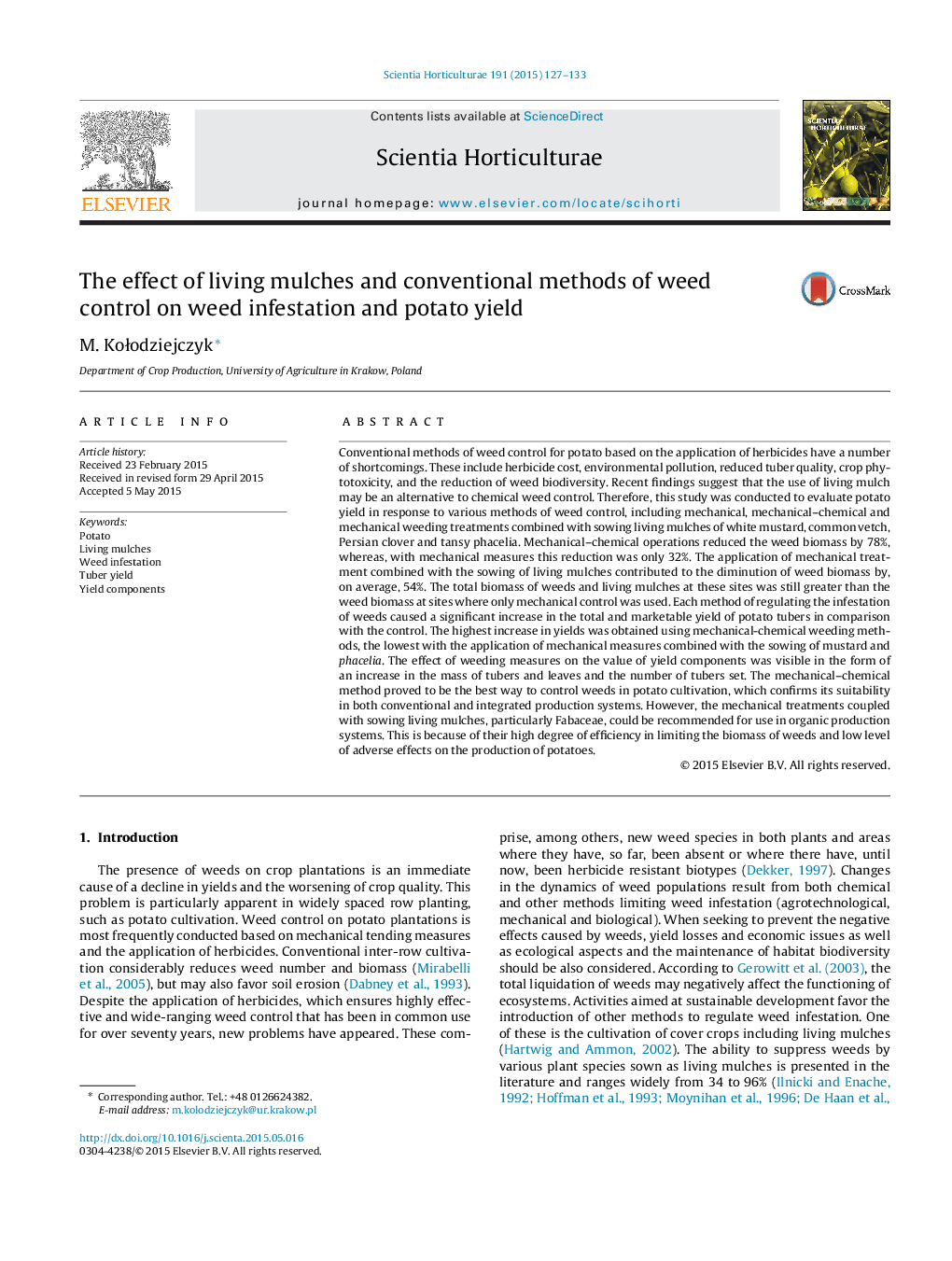| Article ID | Journal | Published Year | Pages | File Type |
|---|---|---|---|---|
| 4566306 | Scientia Horticulturae | 2015 | 7 Pages |
•Living mulch effectively reduce weed biomass.•Potato cultivars differ in their ability to limit the growth of weeds and cover crops.•The highest increase in yields provide mechanical–chemical weeding methods.•Legumes not significantly affect the yield of potato in contrast to other cover crops.
Conventional methods of weed control for potato based on the application of herbicides have a number of shortcomings. These include herbicide cost, environmental pollution, reduced tuber quality, crop phytotoxicity, and the reduction of weed biodiversity. Recent findings suggest that the use of living mulch may be an alternative to chemical weed control. Therefore, this study was conducted to evaluate potato yield in response to various methods of weed control, including mechanical, mechanical–chemical and mechanical weeding treatments combined with sowing living mulches of white mustard, common vetch, Persian clover and tansy phacelia. Mechanical–chemical operations reduced the weed biomass by 78%, whereas, with mechanical measures this reduction was only 32%. The application of mechanical treatment combined with the sowing of living mulches contributed to the diminution of weed biomass by, on average, 54%. The total biomass of weeds and living mulches at these sites was still greater than the weed biomass at sites where only mechanical control was used. Each method of regulating the infestation of weeds caused a significant increase in the total and marketable yield of potato tubers in comparison with the control. The highest increase in yields was obtained using mechanical-chemical weeding methods, the lowest with the application of mechanical measures combined with the sowing of mustard and phacelia. The effect of weeding measures on the value of yield components was visible in the form of an increase in the mass of tubers and leaves and the number of tubers set. The mechanical–chemical method proved to be the best way to control weeds in potato cultivation, which confirms its suitability in both conventional and integrated production systems. However, the mechanical treatments coupled with sowing living mulches, particularly Fabaceae, could be recommended for use in organic production systems. This is because of their high degree of efficiency in limiting the biomass of weeds and low level of adverse effects on the production of potatoes.
